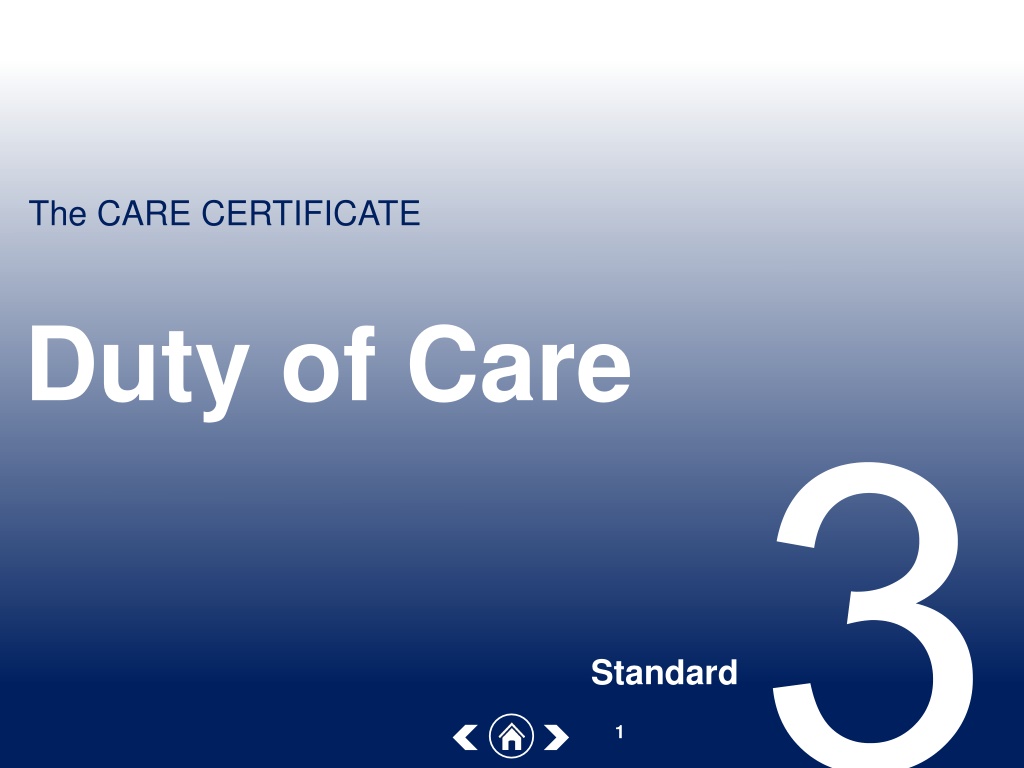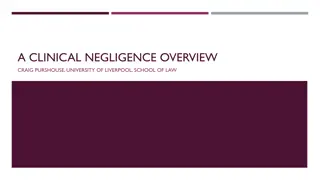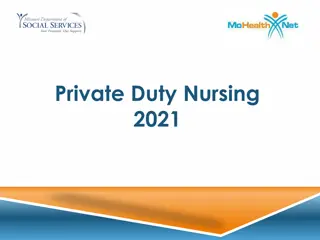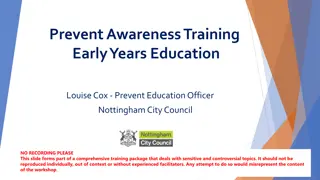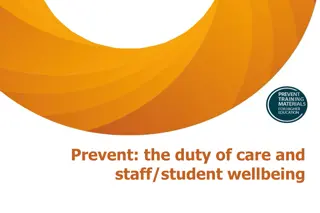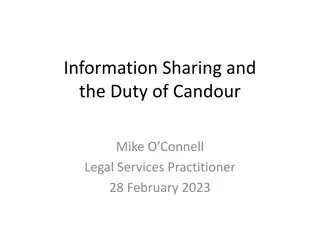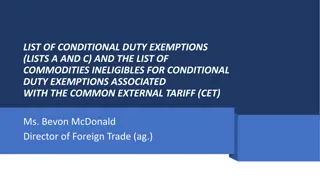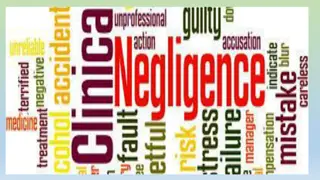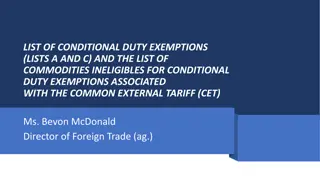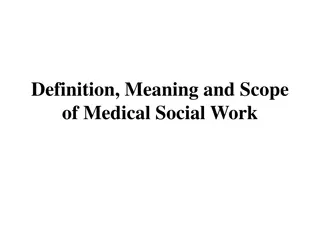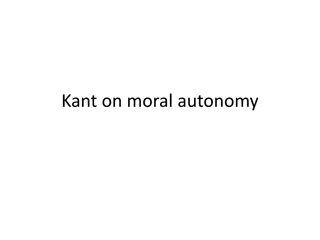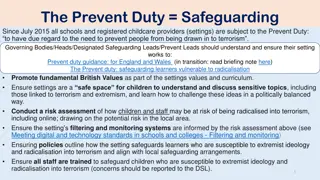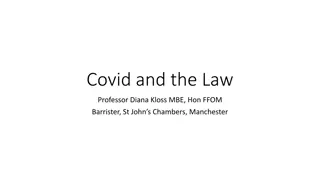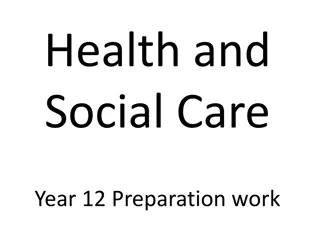Understanding Duty of Care in Health and Social Care Settings
Duty of care in healthcare settings involves promoting wellbeing, ensuring safety, and supporting individuals' rights. Workers must identify concerns, report them appropriately, and support independence while navigating dilemmas and mental capacity issues. The duty extends to enabling individuals to make comments and complaints to improve care quality.
Download Presentation

Please find below an Image/Link to download the presentation.
The content on the website is provided AS IS for your information and personal use only. It may not be sold, licensed, or shared on other websites without obtaining consent from the author. Download presentation by click this link. If you encounter any issues during the download, it is possible that the publisher has removed the file from their server.
E N D
Presentation Transcript
The CARE CERTIFICATE Duty of Care Standard 1
Learning outcomes 3.1 Understand how duty of care contributes to safe practice 3.2 Understand the support available for addressing dilemmas that may arise about duty of care 3.3 Deal with Comments and complaints 3.4 Deal with Incidents, errors and near misses 3.5 Deal with confrontation and difficult situations. Standard 2
What is a duty of care? You have a duty of care to all those receiving care and support in your workplace A Duty of Care is the duty to promote wellbeing and make sure that people are kept safe from harm, abuse and injury Wellbeing Wellbeing could be defined as the positive way in which a person feels and thinks of themselves. 3
What do I need to do? Workers must have the knowledge and skills to act on their duty of care. Workers must be able to: Identify areas of concern Report concerns in agreed ways Your manager will be able to advise you of what to do if you are unsure. 4
Supporting independence Workers must: Respect and protect individuals rights Promote individuals independence Enable the person to make an informed choice. 5
Dilemmas There may be a conflict between protecting a person s rights and independence and their safety and wellbeing. This can lead to dilemmas. It may be necessary to balance: Their right to make choices The need to protect individuals from harm. 6
Mental capacity Some individuals may not have the ability to: Understand their choices Make an informed decision Understand what could happen If decisions have to be made for an individual who lacks capacity, the decision made must be in their best interests. 7
Comments and complaints The Duty of Care includes a duty to support individuals to make comments or complaints about their care. Legislation and guidance relating to comments and complaints includes: The Local Authority Social Services and NHS Complaints (England) Regulations 2009 The NHS Constitution in 2011 Your organisation s agreed ways of working. 8
Supporting individuals to make a complaint Provide a to be made and quiet space for comments or complaints private Inform the individual of the policy confidentiality Listen to the individual, making sure that you do not judge Explain the or complaints should be forwarded to procedure and their comments whom complaints so that they are aware of the situation manager Inform your 9
Incidents, errors and near misses Mistakes must be dealt with appropriately so that similar things do not happen again. Mistakes can be: Near misses Errors Adverse events Situations where an action could have harmed the individual but, either by chance or purpose, was prevented Not doing something as it should have been done, for example through bad planning or being forgetful Action or lack of action that leads to unexpected, unintended and preventable harm Incidents Specific negative events. In health and social care serious incidents are described as events which need investigation as they caused severe harm or damage to either the person receiving care or the organisation. 10
Legislation When incidents happen, legislation sets out how to handle incidents. Relevant legislation includes: The Health and Safety at Work etc. Act 1974 The Management of Health and Safety Regulations 1999 The Reporting of Injuries, Diseases and Dangerous Occurrences Regulations 2013 (RIDDOR) The Control of Substances Hazardous to Health Regulations 2002 (COSHH) The Provisions and Use of Work Equipment Regulations 1998 (PUWER). 11
Conflict in the workplace Conflict or challenging behaviour often happens as a result of distress or because needs are not being met. Reasons could be: Biological Social Environmental Psychological. 12
Managing conflict Acting on early signs of frustration and aggression can stop conflict developing into violence. Always treat the individual with respect and dignity. If possible and safe: Take them to a quiet place Ask questions and listen carefully Take their feelings seriously Try to agree a way forward. 13
